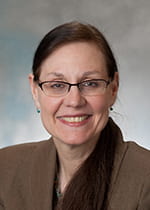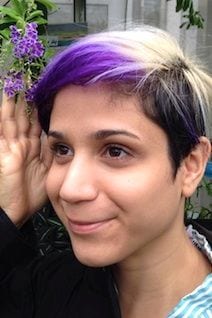 Valerie Reyna, Lois and Mel Tukman Professor of Human Development, Director of the Human Neuroscience Institute, and Co-Director of the Center for Behavioral Economics and Decision Research, was invited to moderate the symposium “Responding to COVID-19: Emerging insights from social, behavioral and economic sciences,” for the National Academies of Sciences, Engineering, and Medicine. You can watch the video recording below:
Valerie Reyna, Lois and Mel Tukman Professor of Human Development, Director of the Human Neuroscience Institute, and Co-Director of the Center for Behavioral Economics and Decision Research, was invited to moderate the symposium “Responding to COVID-19: Emerging insights from social, behavioral and economic sciences,” for the National Academies of Sciences, Engineering, and Medicine. You can watch the video recording below:
Refer to Dr. Reyna's publications to learn more about her Fuzzy-Trace Theory approach to decision making about COVID-19 risk:
Reyna, V. F. (2020). A scientific theory of gist communication and misinformation resistance, with implications for health, education, and policy. Proceedings of the National Academy of Sciences of the United States of America. Advance online publication. https://doi.org/10.1073/pnas.1912441117
Reyna, V. F. (2020). Decision making about risk in the era of the novel coronavirus disease. CHEST, 158(4), 1310-1311. https://doi.org/10.1016/j.chest.2020.07.005
Reyna, V. F. (2020). Of viruses, vaccines, and variability: Qualitative meaning matters. Trends in Cognitive Sciences. Advance online publication. https://doi.org/10.1016/j.tics.2020.05.015
Dr. Reyna also chaired the symposium, "Theories of medical decision making: Explaining, predicting, and improving health and healthcare" at the 42nd Annual Meeting of the Society for Medical Decision Making. You can watch the video recording below:








